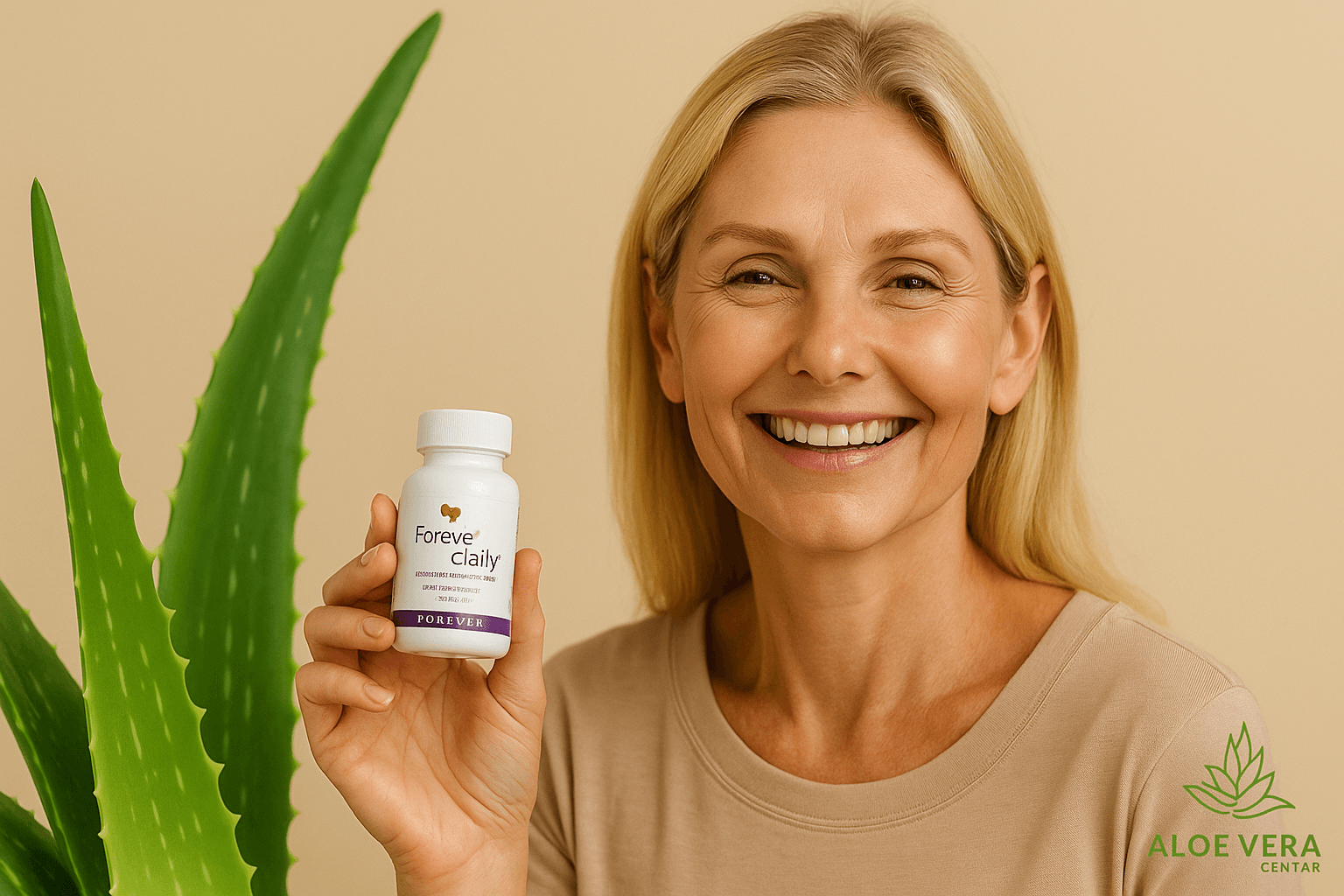
How to choose the best multivitamin – a guide to vitamins and minerals
How to choose the best multivitamin: a guide to vitamins and minerals
We live in a time when almost every pharmacy, health food store, and online shop offers a variety of multivitamin products. So it’s no wonder that many people are wondering: how to choose the best multivitamin and provide the body with all the necessary micronutrients? Choosing the seemingly “right” dietary supplement can be a confusing task – from the various forms of vitamins, different doses and additional minerals, to the differences in the quality of the manufacturers and the ingredients themselves.
In this detailed guide, we will explore all the aspects that can help you choose the optimal multivitamin supplement. We will provide basic information on the vitamins and minerals that should be included, discuss different life stages and specific needs (e.g. for pregnant women, athletes or the elderly), and consider how to identify reliable manufacturers and interpret the declarations on the packaging. If you are ready to discover how to choose the best multivitamin and provide your body with everything it needs, keep reading!
Why take a multivitamin at all?
Although we should get most of the necessary vitamins and minerals through a balanced diet, today’s lifestyle often distances us from an ideal diet. Busy everyday life, stress, irregular meals, lack of time to cook and increased exposure to toxins (eg from the environment) can lead to a lack of key micronutrients. In such situations, a multivitamin can be a useful supplement because:
- Covers “gaps” in your diet: Helps fill in the gaps in vitamins and minerals that you may not be getting in sufficient quantities.
- Supports general vitality: Particularly relevant for people under stress, the elderly population, athletes or those with certain health conditions.
- It functions as a preventive measure: Regular intake of optimal doses of vitamins and minerals can contribute to strengthening immunity, bone health, and the body’s overall resistance.
It is important to note that a multivitamin is not a magic pill that will compensate for a completely unbalanced diet or poor lifestyle. It is a support, not the “main source” of nutrients. However, choosing a quality multivitamin can significantly increase energy levels and contribute to maintaining health.
Basic groups of vitamins and minerals
To understand how to choose the best multivitamin , it’s first worth refreshing your knowledge of the key groups of micronutrients. Vitamins are generally divided into fat-soluble and water-soluble , while minerals are divided into macrominerals (e.g. calcium, magnesium) and microminerals (trace elements like zinc and iron).
1. Fat-soluble vitamins
- Vitamin A: Important for vision, immunity and skin health. It occurs in nature in the form of retinol (animal sources) and beta-carotene (plant sources). Too high doses of retinol can be toxic, so check the doses.
- Vitamin D: Crucial for bone health, immunity, and proper calcium absorption. Many people, especially in the winter months, are deficient in vitamin D. The form D3 (cholecalciferol) is usually considered more effective.
- Vitamin E: An antioxidant that protects cells from oxidative stress. It also helps regulate the immune system and maintain skin health.
- Vitamin K: It is involved in blood clotting and bone building. It consists of forms K1 and K2, with K2 being particularly important for the placement of calcium in the bones (instead of in the blood vessels).
2. Water-soluble vitamins
- Vitamin C: A well-known antioxidant, important for collagen synthesis, immunity, and iron absorption. The body cannot store it in large quantities, so it needs to be consumed regularly.
- B-complex: Includes vitamins B1 (thiamine), B2 (riboflavin), B3 (niacin), B5 (pantothenic acid), B6, B7 (biotin), B9 (folic acid) and B12. They are essential for the normal functioning of the nervous system, energy metabolism and healthy skin and hair.
3. Major minerals (macrominerals)
- Calcium: The foundation of healthy bones and teeth, it also participates in the regulation of muscle contractions and the transmission of nerve impulses.
- Magnesium: Participates in over 300 enzymatic reactions, important for muscle and nerve function. Often lacking in modern diets.
- Potassium: Key to electrolyte balance, blood pressure, and muscle and nerve function.
- Sodium: We usually don’t lack it because we get too much of it through salt. It is rarely added in significant amounts in multivitamins.
- Phosphorus: Calcium’s partner in building bones and teeth.
4. Trace elements (microminerals)
- Iron: Essential for oxygen transport in the blood and many metabolic processes. It is especially important for women of reproductive age and athletes.
- Zinc: Participates in immune response, skin health, fertility, and wound healing.
- Selenium: An antioxidant that works synergistically with vitamin E, important for thyroid function.
- Copper, manganese, and iodine: Each plays a specific role in enzymatic reactions, thyroid health, metabolic processes, and connective tissue formation.
The best multivitamins usually contain well-balanced doses of all these categories, ranging from the minimum daily requirement to the safe upper limit. However, it is necessary to take into account age, gender, and special circumstances, which we will discuss below.
Different life stages and specific needs
Not everyone needs the same profile of vitamins and minerals. For example, pregnant women have different needs than men in their late 40s or teenagers. Here are the most common categories of specific needs:
1. Pregnant and breastfeeding women
Women during pregnancy need increased doses of folic acid (B9) for healthy neural tube development in the baby, as well as sufficient amounts of iron. Vitamin D, calcium and iodine also play an important role in fetal development and maternal health. Multivitamins for pregnant women usually also contain DHA (a form of Omega-3 fatty acids).
2. Older population
As we age, our ability to absorb certain nutrients (especially B12) decreases. Vitamin D and calcium are critical for bone health and osteoporosis prevention, while antioxidants like vitamins C and E and selenium are beneficial for maintaining immunity. Lutein is sometimes added for eye health.
3. Vegetarians and vegans
Excluding animal products often leads to deficiencies in vitamin B12, iron, zinc, and calcium (if dairy products are not consumed). Supplements containing higher doses of these micronutrients can help prevent deficiencies.
4. Active athletes
Increased training intensity imposes greater needs for B vitamins (energy production), iron (oxygen transport) and antioxidants (such as vitamins C and E) for faster recovery and reduction of oxidative stress. Magnesium and potassium help prevent cramps.
5. People with chronic diseases
Diabetics, people with thyroid disease, heart patients or patients with autoimmune conditions need to pay attention to certain micronutrients (e.g. people with hypothyroidism need to get enough iodine, but also avoid overdose). It is best to consult a doctor before taking any multivitamins.
How to recognize a quality multivitamin?
There is a sea of products on the market today, so it is crucial to know how to recognize quality formulas. Here are some pointers:
1. Declaration and ingredients
- Clearly stated dosages: A quality product always states the amount of each vitamin and mineral in relation to the recommended daily intake (RDI/NRV).
- Vitamin and mineral form: For example, folic acid can be in the form of folate or methylfolate (5-MTHF), while B12 is better when it is in the form of methylcobalamin. For minerals, “chelated” forms such as magnesium citrate or bisglycinate are preferred, as they are better absorbed.
2. Reliable manufacturers and certificates
- Quality certificates: GMP (Good Manufacturing Practice) and ISO standards can indicate high production standards.
- Reviews and reputation: Look for opinions from medical experts, nutritionists, or serious reviews, rather than just marketing claims.
3. No unnecessary additives
Many lower-rated multivitamins contain dyes, sweeteners, or excessive amounts of fillers. Try to choose products with minimal additives and that are hypoallergenic, especially if you have intolerances.
Tips for reading labels and avoiding excessive doses
Although vitamins and minerals are essential, “more” does not mean “better.” Excessive intake of certain nutrients can be harmful. For example, too much vitamin A (retinol) can cause headaches, liver damage, and teratogenic effects in pregnancy, while an overdose of iron can lead to digestive problems and poisoning.
- Read the ingredient list: Compare the dosage to the NRV (Nutritional Reference Value) or RDA (Recommended Daily Intake). If something is extremely over 100% on a daily basis, ask yourself if it is really necessary.
- Absorption and Synergy: Pay attention to the ratio of calcium to magnesium (approximately 2:1), as well as vitamins D and K2 when it comes to bone health. Vitamin C increases iron absorption, while excess zinc can hinder copper absorption.
How and when to take a multivitamin? Timing and combinations
To get the most out of your multivitamin, consider the following tips:
1. With a meal rich in fat
Since some vitamins are fat-soluble (A, D, E, K), it is useful to take a multivitamin with a meal containing healthy fats (e.g. olive oil, avocado, nuts).
2. Divide the dose throughout the day (if appropriate)
Some multivitamins recommend taking one dose in the morning and one dose in the afternoon, especially if they contain higher amounts of B vitamins and vitamin C. This maintains more stable blood levels.
3. Avoiding interactions with other medications
- Iron and zinc: They can reduce the absorption of some medications, such as certain antibiotics or thyroid hormones.
- Calcium: If you are taking thyroid medication, take calcium at least four hours before or after it.
Examples of popular multivitamins and what to look out for
There are many brands available on the Croatian market (as well as globally), such as Centrum , Supradyn , Solgar , Forever Daily , etc. Each has its own specificities:
- Centrum: Often contains balanced doses, without exaggeration. Has different versions (for women, men, seniors).
- Supradyn: Emphasis on energy, often with higher doses of B vitamins and coenzyme Q10.
- Solgar multivitamins: Known for their high-quality forms of minerals (chelates), often more expensive. Many appreciate their purity and gluten-free and vegan formulas.
- Forever Daily : It is part of the Forever Living assortment, in addition to key vitamins and minerals, it also contains a mixture of vegetables and fruits. It is an example of a product that synergistically combines several nutrients and phytochemicals.
As always, the choice depends on your needs and budget. There is no “one best multivitamin” for everyone – it’s important that it works for you .
A word about special features: hair, nail and skin supplements
Many multivitamins on the market are advertised as “specialized” for hair, skin and nails. They usually contain increased doses of biotin (vitamin B7), zinc, copper and collagen. Collagen is a protein by structure, while biotin is known for its positive effect on the quality of hair and nails. If your main problem is brittle hair or nails, such formulas can be helpful. However, if you have extremely poor skin, hair or nails, other measures are often needed (e.g., dietary correction, treatment of hormonal imbalances, stress reduction).
When is it time to stop or change multivitamins?
Sometimes a particular multivitamin doesn’t work for you or causes digestive issues. Here are some signs that you should consider switching:
- Side effects: Constipation (often due to excess iron) or nausea (sometimes due to high doses of B6 or other ingredients).
- You don’t feel any improvement: If there is no change after 2-3 months of regular use, the formulation may not suit your body or cover your specific needs.
- Changes in health status: If your diagnosis or health goals change, a new multivitamin may be a better fit.
Every organism is unique, so it’s a good idea to have blood tests periodically (e.g. once a year) and see where your levels of iron, vitamin D, B12, and other parameters stand.
FAQ – Frequently asked questions about choosing a multivitamin
1. Can I take different multivitamins at the same time?
It is generally not recommended to combine several different multivitamin products, as you risk overdosing on some nutrients (e.g. vitamin A or iron). It is better to choose a high-quality, broad-spectrum one.
2. Should a multivitamin contain iron?
It depends. Women of reproductive age, especially those with heavier periods, often have an increased need for iron. Men or the elderly usually do not have such a high need, and too much iron can be harmful. That’s why there are formulas “for women” or “for men.”
3. Why do I feel sick if I take a multivitamin on an empty stomach?
Some people experience nausea or discomfort from concentrated doses of vitamins and minerals. Therefore, it is generally recommended to take them with or immediately after a meal.
4. Can I combine a multivitamin with other supplements (e.g. Omega-3, probiotics)?
As a rule, yes, that’s perfectly fine because it solves different areas. But care should be taken not to duplicate vitamins and minerals in multiple products (eg a double dose of vitamin D from a multivitamin and a separate D3 supplement). Check the declaration.
5. Are more expensive multivitamins really better?
It doesn’t necessarily mean that, but often “more expensive” manufacturers invest more in the quality of raw materials, better forms of minerals, and additional purity tests. Be sure to find out about the composition and manufacturer, and evaluate the price-quality ratio.
The role of Forever Living products in maintaining the balance of vitamins and minerals
When it comes to choosing the best multivitamin , it’s also worth considering products from the Forever Living range. For example, Forever Daily is a comprehensive supplement with 55 recognized nutrients (vitamins, minerals, phytonutrients) and integrated AOS (Aloe OligoSaccharide) technology that can help with better absorption. Many users appreciate the fact that the multivitamin is combined with the benefits of aloe vera and herbal blends.
If you’re interested in a holistic approach, the Forever Vital5 set combines several key supplements, including aloe vera gel, probiotics, Omega-3s, and other nutrients. This approach can be beneficial if you need a broad range of micronutrients and targeted support for digestion and immunity.
As with any product, the key is to research the ingredients, dosage, and match it to your needs. With the right information, Forever Daily or similar products can be successfully incorporated into a healthy routine.
Conclusion: how to choose the best multivitamin for you
Choosing the best multivitamin is actually a combination of:
- Assess your own needs: Are you an athlete, pregnant, elderly, vegan? Do you have a confirmed deficiency of certain minerals (e.g. iron)?
- Reading nutrient labels and forms: Look for high-quality, chelated minerals, while methylfolate and methylcobalamin are often better sources of folate and B12 than folic acid and cyanocobalamin.
- Dose checks: You don’t want to go overboard or stay below recommended values, especially for critical nutrients like vitamins D, C, and B12.
- Choosing a reliable company: Many companies have many years of experience, GMP certificates, and positive reviews from experts and users.
- Adherence to usage recommendations: Take the multivitamin with a meal, preferably with a small amount of fat, and be consistent for at least 2–3 months before evaluating the effect.
When you keep all of this in mind, it will be easier to find a product that will truly improve your energy levels, maintain good health, and help you fill any gaps in your diet. Remember that multivitamins are not a substitute for a complete diet and a healthy lifestyle, but rather an additional support that can significantly facilitate your everyday life.
If you are interested in the full product offering or would like to try Forever Daily and other supplements, take advantage of the special offer at the official Forever Living store. Ultimately, the greatest value is finding the formula that works best for you , given the unique needs of your body and lifestyle.
This article is not a substitute for professional medical advice. For individual recommendations, especially if you have a medical condition or are taking medication, please consult your doctor or a qualified nutritionist.








